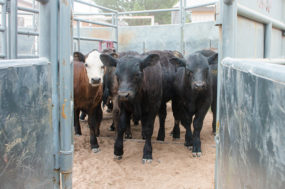That was the case when the news site Politico navigated a special section into food safety regulation, surveying three dozen people in its “bipartisan group of experts” to define what is needed in the arena of food policy.
Hang on to your boots for this one. The collective takeaway is: Government needs to play a bigger role in shaping Americans’ eating habits and food quality.
As we all know by now, Americans eat more and pay less to eat it. Perhaps it’s just an invitation to a government playing the role of the lunchroom nanny, but the demand for the state to dictate what food is and how it’s produced is growing more certain in society.
According to Politico, the survey found a majority of respondents wanting more government regulation in favor of soda taxes, obesity education – and even a stunning endorsement (69 percent in favor) of less meat in the Dietary Guidelines.
They believe industry has too much pull on food policy. When asked about the next farm bill, 59 percent say it wouldn’t pass in 2018, and many of those experts “won’t be sad to see it go.”
But more revealing is the concern for food safety and how the government is lacking in its duties to inspect our food supply. Politico said 83 percent of those surveyed think the FDA should receive more funding for food safety, and 58 percent said government regulation of the food system should be more active than it is.
Read through the results found at Politico - The agenda, and it’s obvious that these “experts” have more faith in government than they do in industry.
Making beef safe for today’s consumers means establishing and following standards that promote the safest beef possible. That’s where Beef Quality Assurance has been a movement decades ahead of the current food safety groundswell.
If today’s producers want to be ahead of a looming regulatory push, they can certainly help their cause by becoming BQA-certified and making those practices common to their operations. BQA promotes diligence to safety, to proper animal care and to clean, healthy beef. If food inspection and safety inspections need to increase in this country, the beef industry will need to equal that increase with its voluntary participation in BQA audits and surveys.
We’ve published Progressive Cattleman for six years now, and this is the sixth year an issue has been dedicated to BQA and food safety. If producers haven’t embraced those principles and standards, now’s a good time to jump aboard. It’s better to join a worthy cause than have the government compel you to it. ![]()

-
David Cooper
- Managing Editor
- Progressive Cattleman
- Email David Cooper







